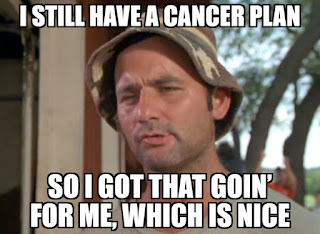With Covid_19 in the news for the last few months there has been a surge in the number of people interested in differing types of insurance. Our "Covid plan" is nothing more than a list of insurance products that are garnering the most questions from people of late. These products are:
- Life insurance. As we see the death toll rise from the virus we have also learned that it's hitting closer to home as friends and family members are affected. Having a life insurance policy in place can give you the piece of mind to make sure your loved ones are able to pay for final expenses as well as being able to stay in there home. A large number of people in this county either have no life insurance or not enough. We can help you find out how much you need and try to keep the premiums in your budget. Not sure how much coverage you need? There's a button on our quoting site that will help you for that too.
- Disability insurance. As the cases rise, so do the number of people who are not able to work. Being sick is stressful enough, so don't add extra stress by not being able to pay your bills. Insure your paycheck with a disability policy.
- Hospital Indemnity. If you get the virus and are admitted to the hospital, that can cost you a lot of money. Deductibles and coinsurance can deplete one's savings and many people of all ages will dip into their retirement account or using a credit card. With a hospital indemnity plan, you can cover the costs of being admitted and confined to the hospital.
Step 1. Run your own life insurance and disability quotes right from our website. Click here to run a quote for whole or term life insurance, as well as disability insurance*. If you would like a price for our hospital indemnity plan, click here to run a quote*.
Step 2. Start the application process. After booking your own appointment that works with your schedule, we'll give you a call and take your application right over the phone. The call will take a few minutes to get your information and your application will be sent immediately to one of our underwriters.
We know that you are concerned about the virus and want to keep your family as safe as possible by social distancing. By taking your application over the phone you don't have to worry about an agent coming into your home and in most cases, a paramed nurse is not necessary either. That makes the whole process much easier and less stressful.
The pandemic continues to spread throughout our nation, as well as globally. As we look forward to a day when we can get back to our normal lives we have to stay vigilant. Staying healthy should be a top priority for everyone, but making sure that our personal financial situation remains healthy is important too. Let us know if we can help you and please, stay healthy!
*Remember that quotes are estimates and not guaranteed premium prices. All rates are subject to underwriting.
Chris Castanes is the president of Surf Financial Brokers, helping people find affordable life and disability insurance coverage. He's also is a professional speaker helping sales people be more productive and efficient and has spoken to professional and civic organizations throughout the Southeast. And please subscribe to this blog! Thanks!









